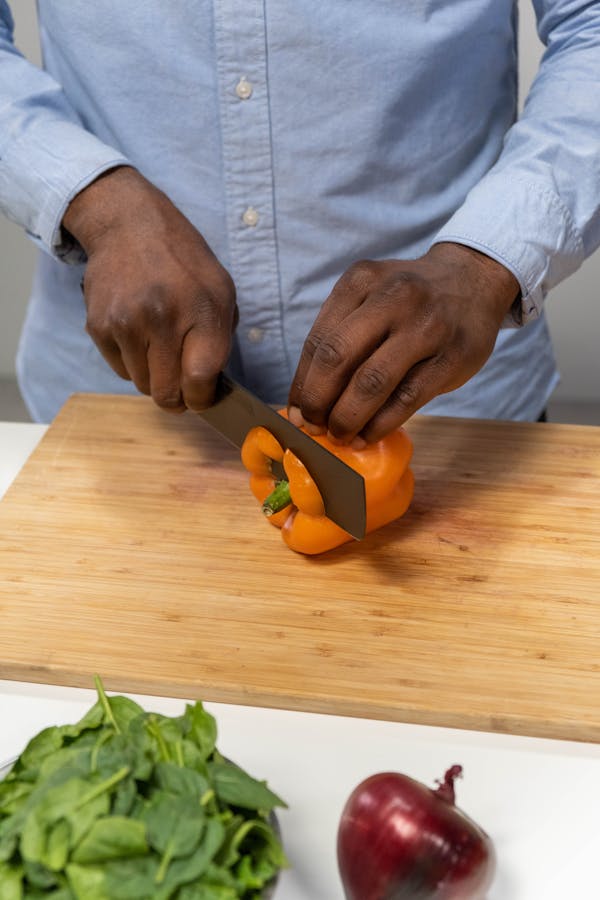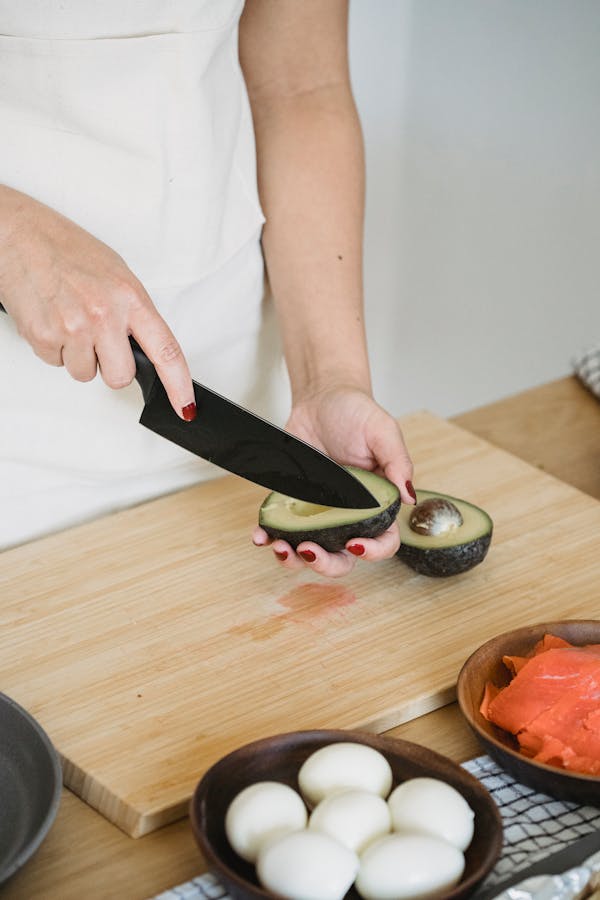Wooden chopping boards are a hygienic and sustainable choice for the home kitchen. They have natural antibacterial properties and are easier to keep sanitary than plastic.
Wooden chopping boards can also be repaired relatively easily. This is a big advantage over plastic which needs to be replaced frequently and can leave deep grooves and stains that harbor bacteria.
Comfortable Surface
Wooden chopping boards offer a comforting touch to any kitchen. They add warmth, texture and an organic element that is appealing to both chefs and home cooks. They are also a good choice for anyone who wants to reduce strain on their hands and wrists during long cooking sessions.
Another great feature of wooden chopping boards is their ability to absorb excess liquid. This helps keep them dry and prevents bacteria from growing on the board. In fact, research has shown that wood outperforms plastic in this area.
However, it is important to regularly condition your wooden chopping board with mineral oil, fractionated coconut oil or other oils formulated specifically for cutting boards. This will help prevent the board from drying out, warping and cracking.
Natural Antimicrobial Properties
Wooden chopping boards are a lot more hygienic than their plastic counterparts. Studies have shown that they’re naturally antibacterial, with their porous surface trapping and killing bacteria. However, they still need to be washed thoroughly with warm soapy water and conditioned with food-safe oils from time to time to ensure that they remain safe for food preparation.

Wooden chopping boards are also eco-friendly, sourced from a renewable and sustainable resource. They’re also biodegradable, unlike their plastic counterparts, which can contribute to environmental pollution when they eventually end up in landfills. Lastly, wooden chopping boards are made from a variety of beautiful woods with rich, varied grains. This lends a touch of natural beauty and warmth to your kitchen, complementing your cooking skills with a sense of craftsmanship.
Eco-Friendly
In the age of sustainability, wooden chopping boards are a wise choice for both culinary enthusiasts and environmentally conscious individuals. While they may not be as eco-friendly as plastic boards when evaluating the entire product life cycle, wood offers many benefits that promote hygienic and sustainable cooking practices.
Aside from being sanitisable through the use of cleaning agents and hot water, wooden chopping boards possess antimicrobial properties that inhibit the growth of bacteria. The oils present in eucalyptus, for example, actively halt bacteria and can be used as a natural alternative to conventional chopping board lubricants.
Wooden chopping boards also absorb excess moisture, eliminating the risk of cross-contamination between raw and cooked foods. They are naturally quieter than their metal and glass counterparts, fostering a more serene kitchen environment.
Versatile
Wooden chopping boards are more than just a reliable prep surface; they also elevate food presentation. They can easily be carved with intricate designs and personal inscriptions, turning them into a cherished kitchen keepsake.

It’s important to choose a board that has a high Janka hardness rating. This standardized rating indicates how resistant the wood is to denting and wear.
Avoid soft woods like balsa, cedar and juniper pine that develop cut marks and stains. These marks and stains create a breeding ground for bacteria that can potentially cause foodborne illness.
Additionally, wooden chopping boards should be conditioned with fractionated coconut oil on a regular basis. This will keep them in optimal condition, reduce the risk of warping and cracking and help them last longer.
Durable
Wooden chopping boards are typically more expensive than their plastic counterparts, but they’re also a durable, eco-friendly option for your kitchen. Unlike plastic, wooden boards are made from natural materials that can be easily recycled and repurposed, making them an excellent choice for those who want to reduce their environmental footprint.
The type of wood you choose will determine how durable your board is. Soft woods like pine and cedar splinter and can harbor bacteria, while harder woods like walnut and maple are less prone to stains. It’s also important to properly condition your wooden board with a food-safe oil, such as fractionated coconut, at least once a month, to prevent it from cracking. This will keep the wood hydrated and help it resist water, odors and bacteria.